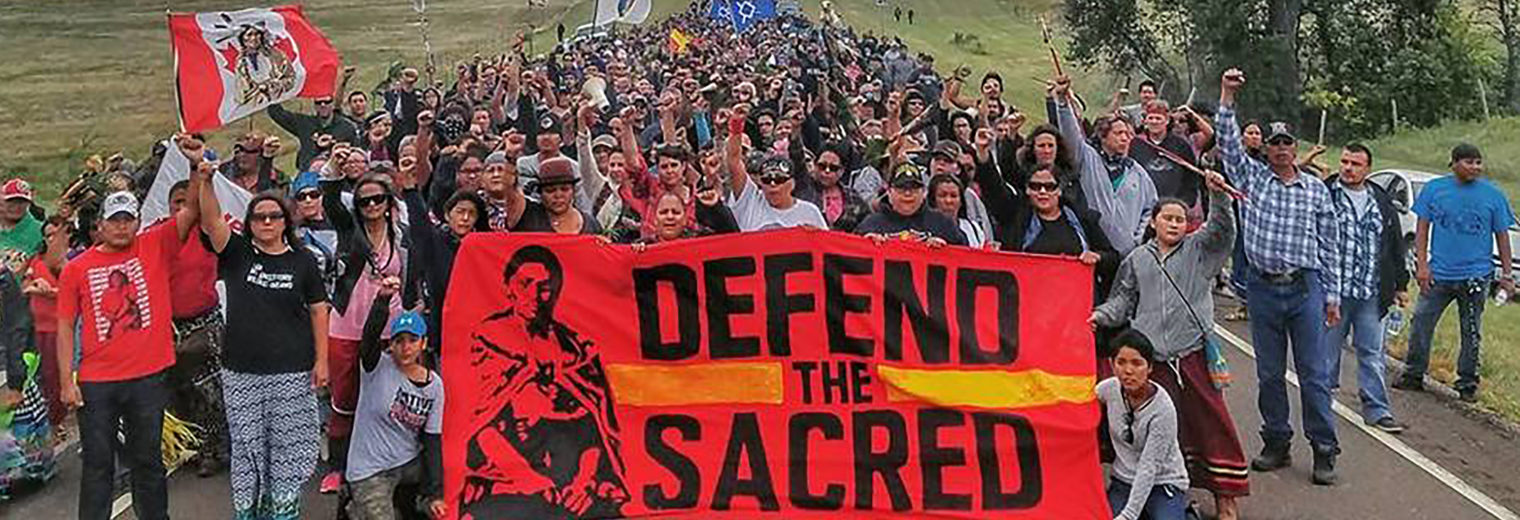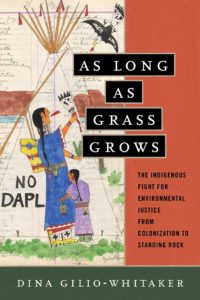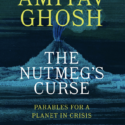Real Food Reads Book Club
As Long as Grass Grows: The Indigenous Fight for Environmental Justice, from Colonization to Standing Rock
Through the unique lens of “indigenized environmental justice,” Indigenous researcher and activist Dina Gilio-Whitaker explores the fraught history of treaty violations, struggles for food and water security, and protection of sacred sites, while highlighting the important leadership of Indigenous women in this centuries-long struggle. As Long As Grass Grows gives readers an accessible history of Indigenous resistance to government and corporate incursions on their lands and offers new approaches to environmental justice activism and policy.
Throughout 2016, the Standing Rock protest put a national spotlight on Indigenous activists, but it also underscored how little Americans know about the longtime historical tensions between Native peoples and the mainstream environmental movement. Ultimately, she argues, modern environmentalists must look to the history of Indigenous resistance for wisdom and inspiration in our common fight for a just and sustainable future.
Praise for As Long as Grass Grows
“A masterpiece and a vital road map for the ongoing fight for Indigenous sovereignty. With every heartbreaking example of sacred sites decimated and traditional knowledge suppressed, the power and resilience of Indigenous people, preserving not only their culture but their very lives, shines through. Powerful, urgent, and necessary reading.”
—Roxanne Dunbar-Ortiz, author of An Indigenous Peoples’ History of the United States
“The process of genocide, which began five centuries ago with the colonization of the Americas and the extermination of indigenous people, has now spread to the planetary level, pushing two hundred species per day to extinction and threatening the entire human species. Dina Gilio-Whitaker’s As Long as Grass Grows makes these connections, holding the seeds of resistance, the seeds of freedom, and the promise of a future.”
—Vandana Shiva, author of Earth Democracy
“Dina Gilio-Whitaker writes in succinct, powerful, and deeply historical ways about Natives and environmental justice or—almost always—lack thereof.”
—Andrés Reséndez, author of The Other Slavery
About the Author
 Dina Gilio-Whitaker (Colville Confederated Tribes) is a lecturer of American Indian Studies at California State University San Marcos, and a consultant and educator in environmental justice policy planning. Dina’s research focuses on Indigenous nationalism, self-determination, environmental justice, and education. At Cal State San Marcos she teaches courses on environmentalism and American Indians, traditional ecological knowledge, religion and philosophy, Native women’s activism, American Indians and sports, and decolonization. She also works within the field of critical sports studies, examining the intersections of indigeneity and the sport of surfing. As a public intellectual, Dina brings her scholarship into focus as an award-winning journalist as well, contributing to numerous online outlets including Indian Country Today, the Los Angeles Times and High Country News. Dina is co-author with Roxanne Dunbar-Ortiz of Beacon Press’s “All the Real Indians Died Off” and 20 Other Myths About Native Americans. Follow Dina Gilio-Whitaker: Website | Twitter
Dina Gilio-Whitaker (Colville Confederated Tribes) is a lecturer of American Indian Studies at California State University San Marcos, and a consultant and educator in environmental justice policy planning. Dina’s research focuses on Indigenous nationalism, self-determination, environmental justice, and education. At Cal State San Marcos she teaches courses on environmentalism and American Indians, traditional ecological knowledge, religion and philosophy, Native women’s activism, American Indians and sports, and decolonization. She also works within the field of critical sports studies, examining the intersections of indigeneity and the sport of surfing. As a public intellectual, Dina brings her scholarship into focus as an award-winning journalist as well, contributing to numerous online outlets including Indian Country Today, the Los Angeles Times and High Country News. Dina is co-author with Roxanne Dunbar-Ortiz of Beacon Press’s “All the Real Indians Died Off” and 20 Other Myths About Native Americans. Follow Dina Gilio-Whitaker: Website | Twitter


 Dina Gilio-Whitaker (Colville Confederated Tribes) is a lecturer of American Indian Studies at California State University San Marcos, and a consultant and educator in environmental justice policy planning. Dina’s research focuses on Indigenous nationalism, self-determination, environmental justice, and education. At Cal State San Marcos she teaches courses on environmentalism and American Indians, traditional ecological knowledge, religion and philosophy, Native women’s activism, American Indians and sports, and decolonization. She also works within the field of critical sports studies, examining the intersections of indigeneity and the sport of surfing. As a public intellectual, Dina brings her scholarship into focus as an award-winning journalist as well, contributing to numerous online outlets including Indian Country Today, the Los Angeles Times and High Country News. Dina is co-author with Roxanne Dunbar-Ortiz of Beacon Press’s “All the Real Indians Died Off” and 20 Other Myths About Native Americans. Follow Dina Gilio-Whitaker:
Dina Gilio-Whitaker (Colville Confederated Tribes) is a lecturer of American Indian Studies at California State University San Marcos, and a consultant and educator in environmental justice policy planning. Dina’s research focuses on Indigenous nationalism, self-determination, environmental justice, and education. At Cal State San Marcos she teaches courses on environmentalism and American Indians, traditional ecological knowledge, religion and philosophy, Native women’s activism, American Indians and sports, and decolonization. She also works within the field of critical sports studies, examining the intersections of indigeneity and the sport of surfing. As a public intellectual, Dina brings her scholarship into focus as an award-winning journalist as well, contributing to numerous online outlets including Indian Country Today, the Los Angeles Times and High Country News. Dina is co-author with Roxanne Dunbar-Ortiz of Beacon Press’s “All the Real Indians Died Off” and 20 Other Myths About Native Americans. Follow Dina Gilio-Whitaker: 


